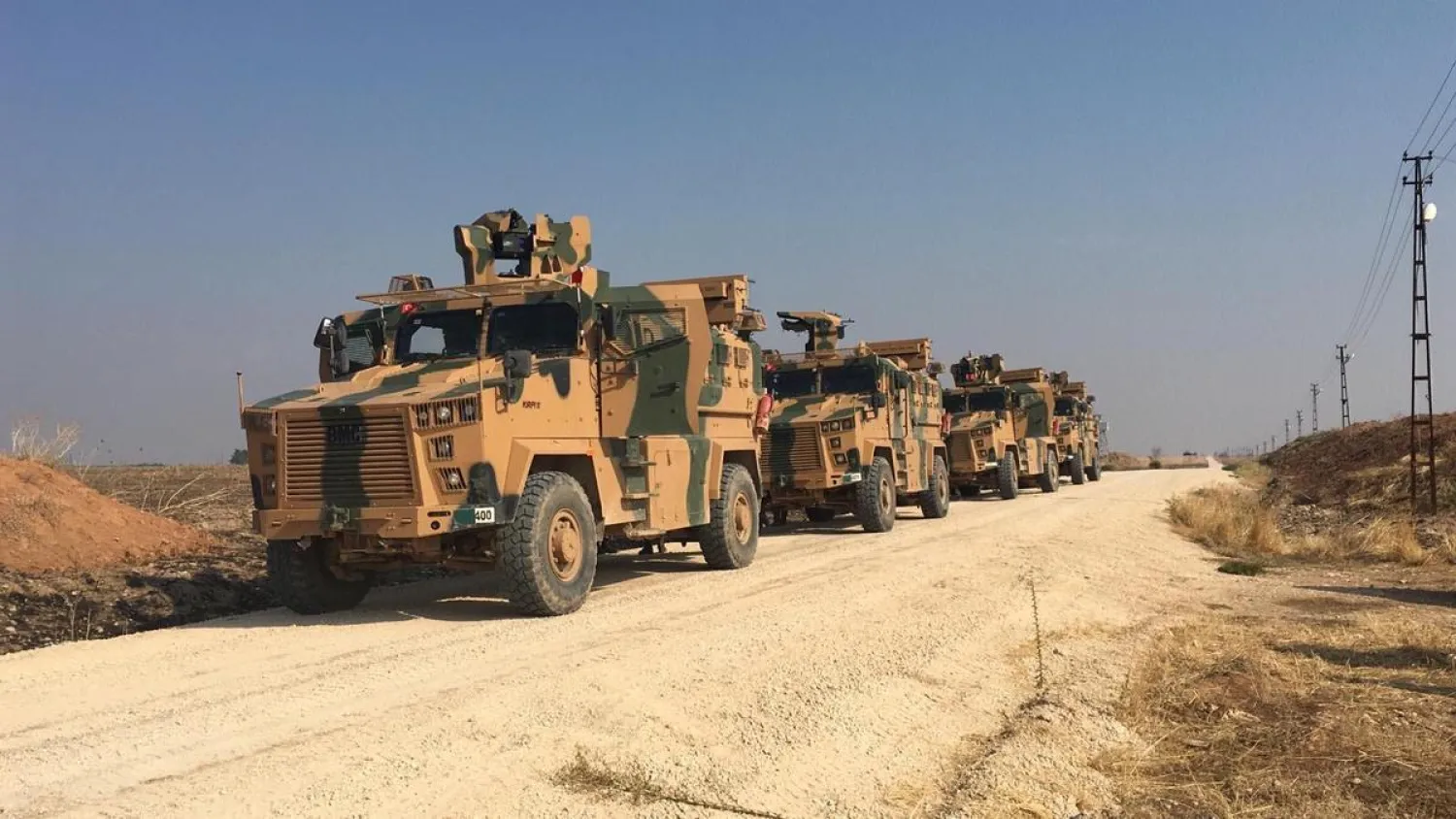Turkish troops patrolled single-handedly along the Aleppo-Latakia international highway (M4) on Wednesday, starting from Saraqeb city to Musaybin village, east of the Syrian province of Idlib.
This is the seventh patrol of its kind on the highway since March 15, when the Russian-Turkish agreement on carrying out joint military patrols became effective.
In the meantime, the Syrian Observatory for Human Rights (SOHR) monitored artillery shelling by factions loyal to Turkey, targeting the village of Qzaali in Tal Abyad's countryside.
No casualties have been reported to date. They also shelled positions of the Syria Democratic Forces in the western areas of Tal Abyad city north of Raqqa.
Two days ago, unknown gunmen booby-trapped Al-Kufayr bridge on M4, west of Jisr Al-Shughur village, in a clear rejection of the Turkey-Russia deal, said the SOHR.
Also Wednesday, During "Operation Peace Spring," Turkish security forces found 760.5 kilograms of explosives and a large cache of ammunition at a house in Tal Abyad, which was still under construction.
A five-meter deep tunnel was also found under the house. Four suspects were taken into custody in the operation.
Moreover, the Civil Administration of Services in Idlib announced hammering a deal with a private Turkish company to supply the province with electricity.
The administration affirmed that work was underway to set up a new line from the Turkish border to the nearest station in Idlib so that power is gradually restored to all regions.
For the past years, residents of Idlib and its countryside have suffered from electricity cuts because most stations went out of service after coming under attack from Syrian regime forces.









